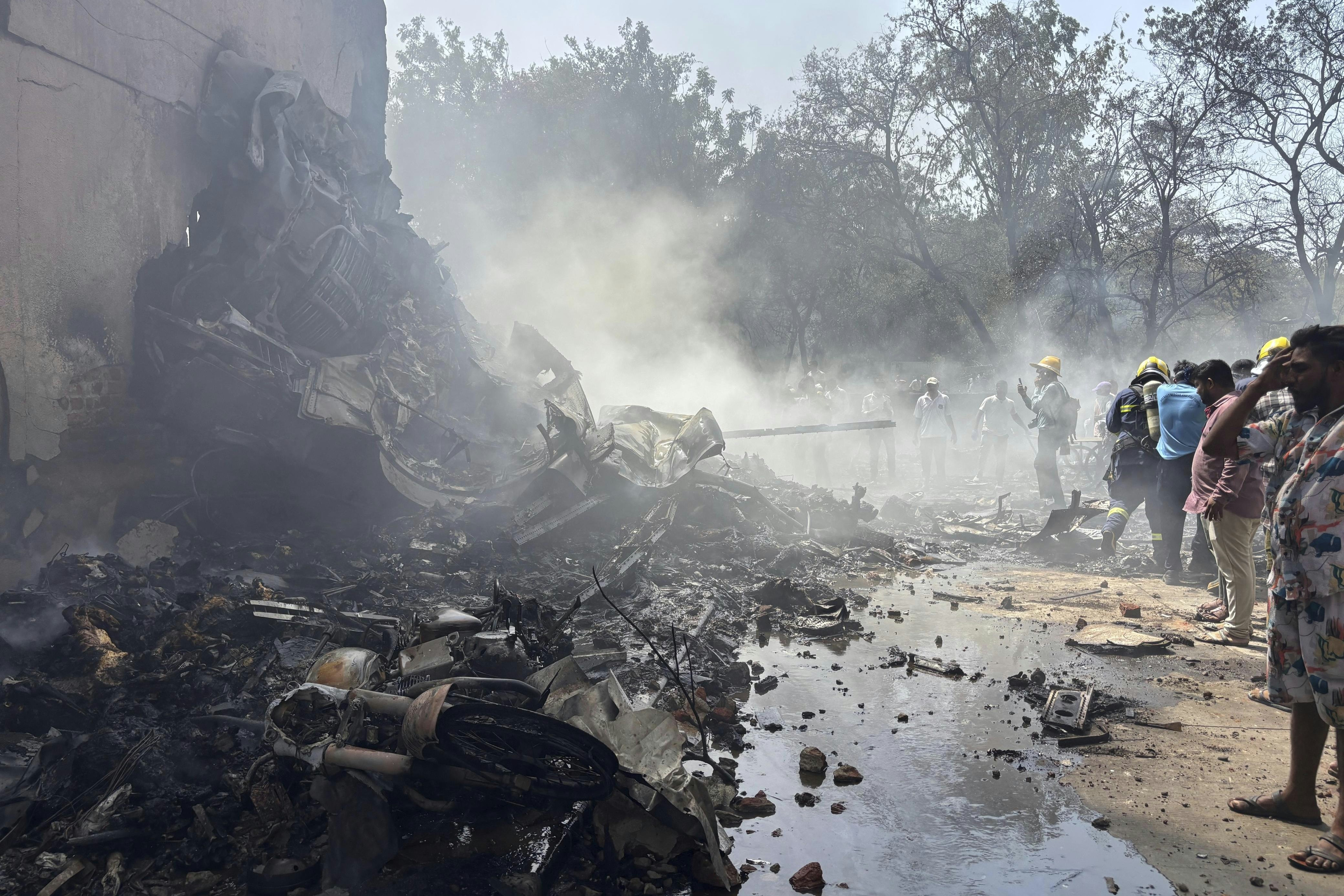AeroGenie — Uw intelligente copiloot.
Trending
Categories
Investigation into the Crash of Flight AI 171

Investigation into the Crash of Flight AI 171
The investigation into the crash of Air India Flight 171 has generated significant controversy, leaving both aviation experts and the public with unresolved questions. The official report issued by the Aircraft Accident Investigation Bureau (AAIB) appears to deflect critical scrutiny by concentrating predominantly on the role of the Fuel Control Switches (FCS). This focus frames the switches as either a site of pilot error or mechanical malfunction, a narrative that implicitly directs suspicion—and potentially blame—toward the flight crew.
Ambiguities in the Official Report
The AAIB report selectively quotes cockpit voice recordings, which suggest confusion and miscommunication during the flight. However, these excerpts remain vague and insinuate pilot fault without explicitly stating it. More notably, the report offers only a cursory examination of the Full Authority Digital Engine Control (FADEC) system, a crucial component in modern jet engines. FADEC functions as the digital control center capable of managing engine performance and can initiate a dual engine shutdown if it malfunctions or misinterprets sensor data. Given that both engines failed within three seconds of takeoff, coinciding with the FCS allegedly moving to cutoff, a thorough forensic analysis of FADEC’s involvement would be expected. Instead, the report largely overlooks this critical aspect.
This omission is particularly troubling in the context of recent industry developments. The U.S. Federal Aviation Administration and Boeing have reaffirmed the safety of fuel cutoff switch locks amid ongoing investigations. These reassurances come at a time when stakeholders, insurers, and competing airlines are intensifying their scrutiny of safety protocols in response to the incident.
Questions Surrounding Data Integrity and Investigative Rigor
The AAIB report also raises concerns due to factual inconsistencies. It asserts that despite the aft Enhanced Airborne Flight Recorder (EAFR) being completely destroyed and the forward EAFR damaged, data was successfully retrieved via the so-called Golden Chassis. If the investigation’s conclusions rely on this data, the presence of numerous inaccuracies calls into question the reliability of the findings. There is even speculation that the EAFR data itself may have been compromised. In an era where artificial intelligence can convincingly replicate voices, the integrity of cockpit voice recordings must be beyond reproach to maintain confidence in the investigation.
From the perspective of experienced pilots, the narrative presented by the AAIB does not align with operational realities. It remains highly questionable whether the Fuel Control Switches were deliberately moved to cutoff or if the engines failed independently. The report’s omissions—most notably the absence of altitude data, comprehensive engine telemetry, and a full transcript of pilot communications—further fuel suspicions that the investigation may prioritize damage control over uncovering the truth.
The lack of altitude traces during the critical climb phase is especially alarming. Altitude data is fundamental in any commercial aircraft accident investigation, and its absence raises serious concerns about either the suppression of evidence or insufficient investigative rigor. Additionally, inconsistencies in the reporting of landing gear status complicate the overall picture, as standard operating procedures require gear retraction within seconds of takeoff.
As the investigation proceeds, the aviation community and the public await a more transparent and comprehensive account—one that addresses not only the actions of the flight crew but also the potential for systemic or technological failures. Until such clarity is provided, the distress and uncertainty among flight crews and stakeholders remain unresolved.

Emirates Unveils Cabin Design for New Boeing 777X

Eighteen Years On, the Airbus A380 Remains Central to a $34 Billion Airline

How a boom in luxury airline seats is slowing down jet deliveries

Navitaire Outage Attributed to Planned Maintenance

DigiYatra Debuts Outside Aviation at India AI Impact Summit

Vietnam Orders Strengthen Boeing’s Commercial Outlook

Airbus Signals Uncertainty Over Future A400M Orders

JobsOhio Awards $2 Million Grant to Hartzell Propeller for Innovation Center

Collins Aerospace Tests Sidekick Autonomy Software on YFQ-42A for U.S. Air Force CCA Program

How the Airbus A350-1000 Compares to the Boeing 777
